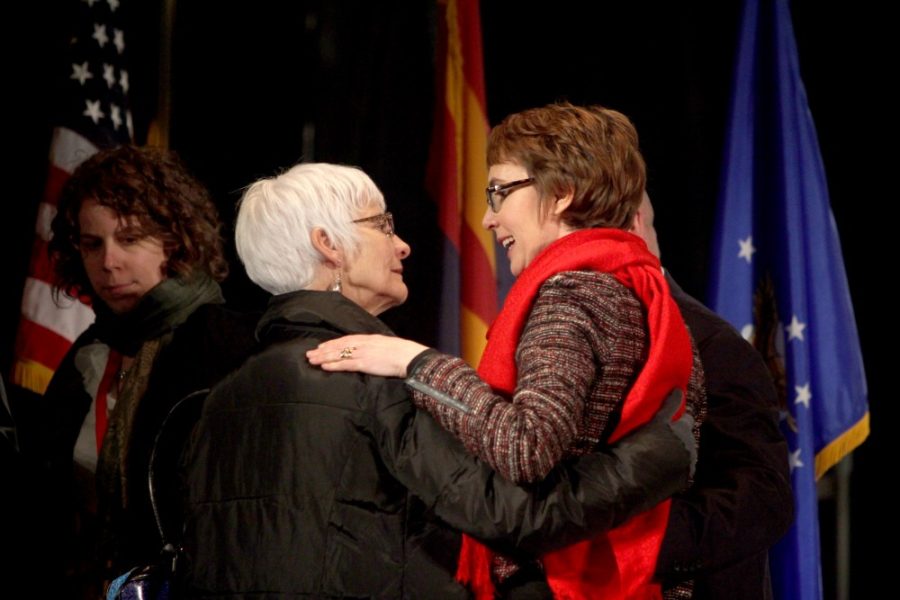Editor’s note: In honor of the one-year anniversary of the Jan. 8, 2011, shooting, which killed six and wounded 13 including Congresswoman Gabrielle Giffords, the Daily Wildcat investigated the involvement and importance of UA interns working in her office both in Tucson and Washington, D.C.
Since the Jan. 8, 2011, shooting that wounded U.S. Rep. Gabrielle Giffords, interns in her Tucson office have played a vital role.
When Annie Mercer, a senior studying political science and sociology, applied for the internship two semesters ago, she thought the job would mostly entail secretarial work, but it turned out to be much more.
“The office relies on interns to help facilitate with social work, which is a large part of what we do one-on-one with constituents,” she said. “What that and taking a part in community outreach events, I’ve gained so much more valuable experience.”
Mercer said she was originally interested in the internship because she wanted to work for a strong woman who was prominent in politics. Now, she said she is part of the office’s “close-knit family feel.”
Mercer said seeing how hard everyone works in the office gives her an idea of the type of congresswoman Giffords is.
“This office does everything they can to implement everything she stands for,” she added.
The biggest difference for Jason Brown, a political science senior and fourth-year intern, was the tone of constituents.
“Constituents were very angry before the shooting about things like health care,” he said. “After, attitudes completely changed. People were calling to offer support and send well wishes.”
Brown also said he feels he has done more significant work since the shooting. This includes drafting letters, helping constituents and aiding caseworkers.
Although interns like Kyle Duffy, a second-semester intern and a sociology senior, said people have yet to ask him how they are represented in Giffords’ absence, Brown said that constituents, his friends and even his family are constantly wondering.
“I always tell them that they (her offices) function the same way — they have picked up the pace, they are not slowing down,” he said. “Caseworkers are doing more work than ever to help constituents. While she (Giffords) isn’t physically in D.C., she is talking to colleagues about what she wants to go through, and they are passing her legislation.”
When Giffords took office, there was no intern program, according to Joni Jones, the Tucson office manager and intern coordinator. When she started the program in fall of 2007 after speaking to other congressional offices that offered internships, she said she discovered that UA students could be utilized for a lot more in-depth work than just answering phones.
“I found them (interns) to be amazingly capable,” she said. “We’ve actively trained the interns to assist as constituent service representatives.”
Giffords’ office uses more interns than most members of Congress do, Jones said, because she and her staff have found a way to effectively integrate them -– the interns do research for press, draft leaders and help the people Giffords represents.
“Interns will tell you they become part of our family and are treated like staff,” Jones added. “The family feeling makes for a seamless integration of interns in all aspects.”









